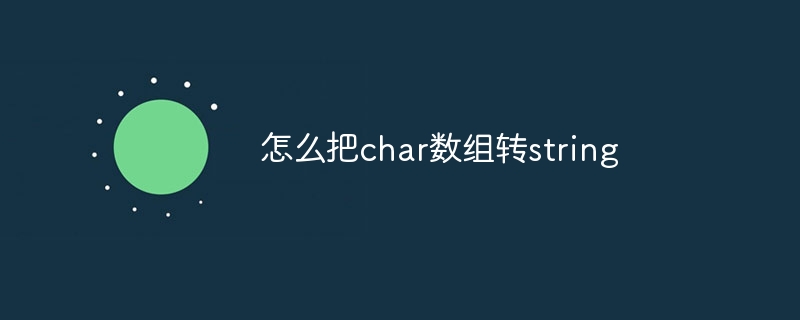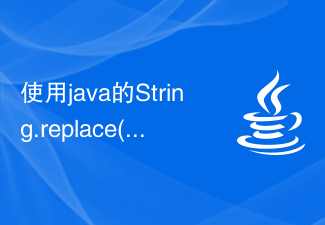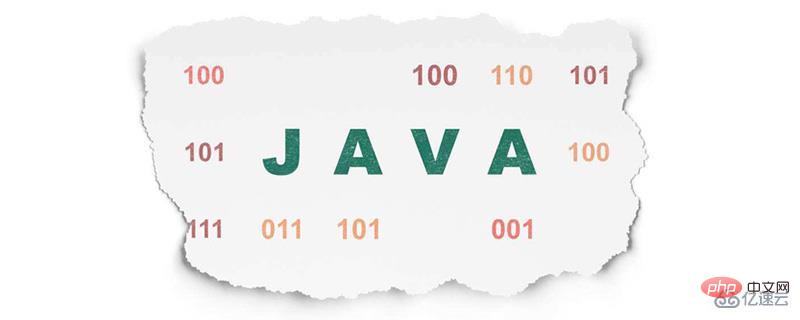
Why the String class in Java is immutable (detailed explanation)
public final class String
implements java.io.Serializable, Comparable<String>, CharSequence {
/** The value is used for character storage. */
private final char value[];}The value of the String class is stored in in the value array, and is modified by private final
1. Private modification indicates that external classes cannot access value, and subclasses cannot access it. Of course, the String class cannot have subclasses. , because the class is final modified
2, final modification, indicating that the reference of value will not be changed, and value will only be initialized in the constructor of String, and there is no other way to modify the value in the array Value ensures that the reference and value of value will not change
So we say that the String class is immutable.
And many methods, such as substring, do not operate on the original String class, but generate a new String class
public String substring(int beginIndex) {
if (beginIndex < 0) {
throw new StringIndexOutOfBoundsException(beginIndex);
}
int subLen = value.length - beginIndex;
if (subLen < 0) {
throw new StringIndexOutOfBoundsException(subLen);
}
return (beginIndex == 0) ? this : new String(value, beginIndex, subLen);}Why is String set to be disabled? changing?
String constant pool
Java has 8 basic data types
Integer types: byte, short, int, long. Packaging types are Byte, Short, Integer, Long
Floating point types: float, double. The packaging type is Float, Double
Character type: char. The packaging type is Character
Boolean type: boolean. The packaging type is Boolean
Except Float and Double among the 8 packaging types, the constant pool is not implemented. The rest are implemented. Of course, they are all constants of the String class implemented through the flyweight mode. Pools are implemented at the JVM level.
Why is there a constant pool? The constant pool is used to avoid frequent creation and destruction of objects that affects system performance, and it implements object sharing.
For example, the string constant pool puts all string literals into a constant pool during the compilation phase.
- Save memory space: All identical string constants in the constant pool are merged and only occupy one space.
- Save running time: When comparing strings, == is faster than equals(). For two reference variables, just use == to determine whether the references are equal, and you can also determine whether the actual values are equal.
I will not discuss anything before jdk1.7. Starting from jdk1.7, the string constant pool began to be placed in the heap, and then all the contents of this article are based on jdk1.8
The following code is often asked
String str1 = "abc";
String str2 = "abc";
String str3 = new String("abc");
String str4 = new String("abc");
// trueSystem.out.println(str1 == str2);
// falseSystem.out.println(str1 == str3);
// falseSystem.out.println(str3 == str4);The structure in memory is as follows The constant pool stores references
The constant pool stores references
Explain the output of the above code. There are two ways to create string objects in Java
String str1 = "abc"; String str2 = "abc"; // trueSystem.out.println(str1 == str2);
When creating a string using a literal value, the JVM will first remove the string Find whether the object "abc" exists in the pool
If it does not exist, create the object "abc" in the string pool, and then assign the address of the object "abc" in the pool to str1, so that str1 It will point to the string object "abc" in the pool
If it exists, no object will be created, and the address of the "abc" object in the pool will be directly returned and assigned to str2. Because str1 and str2 point to the "abc" object in the same string pool, the result is true.
String str3 = new String("abc");
String str4 = new String("abc");
// falseSystem.out.println(str3 == str4);When using the new keyword to create a string object, the JVM first searches for the string object "abc" in the string pool.
If not, it first searches the string object in the string pool. Create an "abc" string object in the pool, then create an "abc" string object in the heap, and then assign the address of the "abc" string object in the heap to str3
If there is one, Then instead of creating the "abc" object in the pool, create an "abc" string object directly in the heap, and then assign the address of the "abc" object in the heap to str4. In this way, str4 points to the "abc" string object created in the heap;
Because str3 and str4 point to different string objects, the result is false.
Cache HashCodeWhen the String class is created, the hashcode is cached in the hash member variable because the String class is immutable , so the hashcode will not change. In this way, every time you want to use the hashcode, you can just get it directly without recalculating it, which improves the efficiency.
public final class String
implements java.io.Serializable, Comparable<String>, CharSequence {
/** Cache the hash code for the string */
private int hash; // Default to 0
}
Can be used as the key of HashMapDue to the immutable nature of the String class, it is often used as the key of HashMap. If the String class is variable and the content changes, the hashCode will also change. When fetching it from the HashMap based on this key, it may not be fetched. value, or get the wrong value
Thread safetyImmutable objects are inherently thread-safe, which can avoid problems in a multi-threaded environment Next, perform synchronization operations on String.
Thank you everyone for reading, I hope you will benefit a lot.
This article is reproduced from: https://blog.csdn.net/zzti_erlie/article/details/106872673
Recommended tutorial: "java tutorial"
The above is the detailed content of Why is the String class in Java immutable (detailed explanation). For more information, please follow other related articles on the PHP Chinese website!
 使用java的String.valueOf()函数将基本数据类型转换为字符串Jul 24, 2023 pm 07:55 PM
使用java的String.valueOf()函数将基本数据类型转换为字符串Jul 24, 2023 pm 07:55 PM使用Java的String.valueOf()函数将基本数据类型转换为字符串在Java开发中,当我们需要将基本数据类型转换为字符串时,一种常见的方法是使用String类的valueOf()函数。这个函数可以接受基本数据类型的参数,并返回对应的字符串表示。在本文中,我们将探讨如何使用String.valueOf()函数进行基本数据类型转换,并提供一些代码示例来
 怎么把char数组转stringJun 09, 2023 am 10:04 AM
怎么把char数组转stringJun 09, 2023 am 10:04 AMchar数组转string的方法:可以通过赋值来实现,使用{char a[]=" abc d\0efg ";string s=a;}语法,让char数组对string直接赋值,执行代码即可完成转换。
 使用java的String.replace()函数替换字符串中的字符(串)Jul 25, 2023 pm 05:16 PM
使用java的String.replace()函数替换字符串中的字符(串)Jul 25, 2023 pm 05:16 PM使用Java的String.replace()函数替换字符串中的字符(串)在Java中,字符串是不可变的对象,这意味着一旦创建了一个字符串对象,就无法修改它的值。但是,你可能会遇到需要替换字符串中的某些字符或者字符串的情况。这时候,我们可以使用Java的String类中的replace()方法来实现字符串的替换。String类的replace()方法有两种重
 2w字 详解 String,yydsAug 24, 2023 pm 03:56 PM
2w字 详解 String,yydsAug 24, 2023 pm 03:56 PM大家好,今天给大家分享java基础知识之String。String类的重要性就不必说了,可以说是我们后端开发用的最多的类,所以,很有必要好好来聊聊它。
 使用java的String.length()函数获取字符串的长度Jul 25, 2023 am 09:09 AM
使用java的String.length()函数获取字符串的长度Jul 25, 2023 am 09:09 AM使用Java的String.length()函数获取字符串的长度在Java编程中,字符串是一种非常常见的数据类型,我们经常需要获取字符串的长度,即字符串中字符的个数。在Java中,我们可以使用String类的length()函数来获取字符串的长度。下面是一个简单的示例代码:publicclassStringLengthExample{publ
 java的String类如何使用Apr 19, 2023 pm 01:19 PM
java的String类如何使用Apr 19, 2023 pm 01:19 PM一、认识String1.JDK中的String首先我们看看JDK中的String类源码,它实现了很多接口,可以看到String类被final修饰了,这就说明String类不可以被继承,String不存在子类,这样所有使用JDK的人,用到的String类都是同一个,如果String允许被继承,每个人都可以对String进行扩展,每个人使用的String都不是同一个版本,两个不同的人使用相同的方法,表现出不同的结果,这就导致代码没办法进行开发了继承和方法覆写在带来灵活性的同时,也会带来很多子类行为不
 Java String中的split方法如何使用May 02, 2023 am 09:37 AM
Java String中的split方法如何使用May 02, 2023 am 09:37 AMString中split方法使用String的split()方法用于按传入的字符或字符串对String进行拆分,返回拆分之后的数组。1、一般用法用一般的字符,例如@或,等符号做分隔符时:Stringaddress="上海@上海市@闵行区@吴中路";String[]splitAddr=address.split("@");System.out.println(splitAddr[0]+splitAddr[1]+splitAddr[2]+splitAddr[3
 Golang函数的byte、rune和string类型转换技巧May 17, 2023 am 08:21 AM
Golang函数的byte、rune和string类型转换技巧May 17, 2023 am 08:21 AM在Golang编程中,byte、rune和string类型是非常基础、常见的数据类型。它们在处理字符串、文件流等数据操作时发挥着重要作用。而在进行这些数据操作时,我们通常需要对它们进行相互的转换,这就需要掌握一些转换技巧。本文将介绍Golang函数的byte、rune和string类型转换技巧,旨在帮助读者更好地理解这些数据类型,并能够熟练地在编程实践中应用


Hot AI Tools

Undresser.AI Undress
AI-powered app for creating realistic nude photos

AI Clothes Remover
Online AI tool for removing clothes from photos.

Undress AI Tool
Undress images for free

Clothoff.io
AI clothes remover

AI Hentai Generator
Generate AI Hentai for free.

Hot Article

Hot Tools

Dreamweaver Mac version
Visual web development tools

SublimeText3 Chinese version
Chinese version, very easy to use

SAP NetWeaver Server Adapter for Eclipse
Integrate Eclipse with SAP NetWeaver application server.

Safe Exam Browser
Safe Exam Browser is a secure browser environment for taking online exams securely. This software turns any computer into a secure workstation. It controls access to any utility and prevents students from using unauthorized resources.

VSCode Windows 64-bit Download
A free and powerful IDE editor launched by Microsoft






